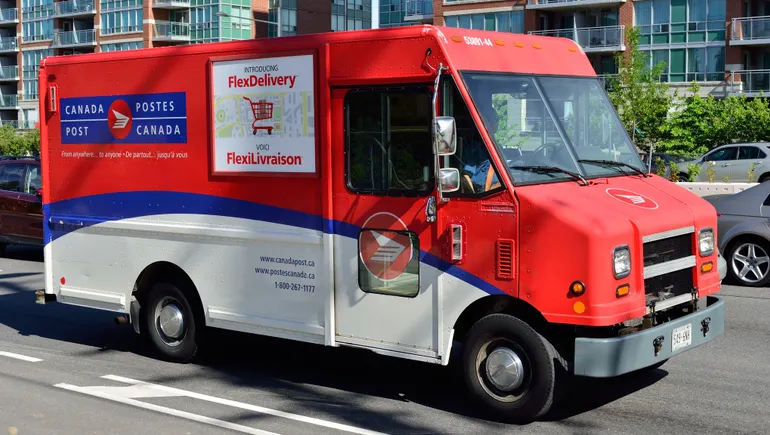Listen to the article
This audio is auto-generated. Please let us know if you have feedback.
Canada Post’s delivery operations could undergo significant changes if employees vote in favor of the carrier’s contract proposals.
Two multi-year contract offers will soon be up for vote by more than 50,000 members of two Canadian Union of Postal Workers bargaining units — one covering urban workers, the other covering rural and suburban mail carriers. Dates for when the vote will take place have not yet been announced.
Majority yes votes on both contracts would end a prolonged period of labor uncertainty for Canada Post and its shippers. Canada Minister of Jobs and Families Patty Hajdu ordered the vote take place in an attempt to move the prolonged negotiations process forward.
But the path to approval may be challenging. CUPW remains opposed to the offers and is calling on its members to vote against them, with pay being one of many sticking points. If approved, employees would receive a 13.59% compounded wage increase over four years, falling short of CUPW’s aim for a 19% pay hike.
“A strong no vote will show management we’re united, and we won’t settle for anything less than what we deserve now – and in the future,” Jan Simpson, the union’s national president, said earlier this month. “It will also show the Government that it can’t get away with attacking free and fair collective bargaining.”
Canada Post plans to implement several adjustments in its delivery network if a majority of employees vote yes on the offers, which the carrier says will help it better compete against other delivery providers.
Dynamic routing
One change to Canada Post’s operations would be the soft launch of dynamic routing, which it says other major couriers have already implemented into their own operations.
A dynamic routing delivery model refines routes daily to more evenly distribute volume among urban couriers, potentially reducing the need for overtime and creating more manageable workdays, per Canada Post. The change will also “help create more consistent, predictable service for customers,” the company said on its website.
CUPW is pushing back against the use of dynamic routing, and Simpson said the practice would hurt employees’ seniority rights and lead to heavier workloads daily.
If approved, Canada Post will limit the implementation of dynamic routing to no more than 10 locations — which represent 3% of its delivery facilities — over the duration of the contract for initial testing and validation. Both contract offers would be in effect until Jan. 31, 2028, if approved.
Load leveling
Through load leveling, Canada Post team leaders will determine if any work redistribution is needed before letter carriers start their routes, the company said. Reassigning pickups, deliveries and other work as needed aims to avoid some routes being overloaded with volume, according to Canada Post.
“This approach addresses the gaps between our current route structure process and the natural volume fluctuations that occur as demand changes throughout the year,” Canada Post said in its urban contract proposal.
Urban letter carriers’ routes and start times will not be affected. The initiative will not apply in facilities where dynamic routing is active, and changes will be rolled out gradually.
Simpson warned CUPW members that the practice of load leveling could “give far too much power to supervisors to reassign work, opening us up to the risks of favouritism, bullying and harassment.”
Weekend delivery
Canada Post plans to establish “part-time flex” and “parcel delivery part time” employee types to support more flexible delivery operations seven days a week.
Parcel delivery part time employees will be primarily focused on weekend delivery, per the urban contract proposal. The carrier said delivering on Saturdays and Sundays will allow it to tap into growing demand for e-commerce shipping services as letter mail volume declines.
“The parcel delivery business is intensely competitive, and we haven’t had the flexibility we need to be able to go head-to-head with the competition,” Canada Post said. “Delivering 7 days a week will allow us to meet the ecommerce needs of Canadians and help us return to financial sustainability.”
CUPW is against the proposal, saying a part-time weekend delivery workforce “would all but eliminate overtime for full-time carriers” and potentially shift some volume away from union members’ weekday workloads.


